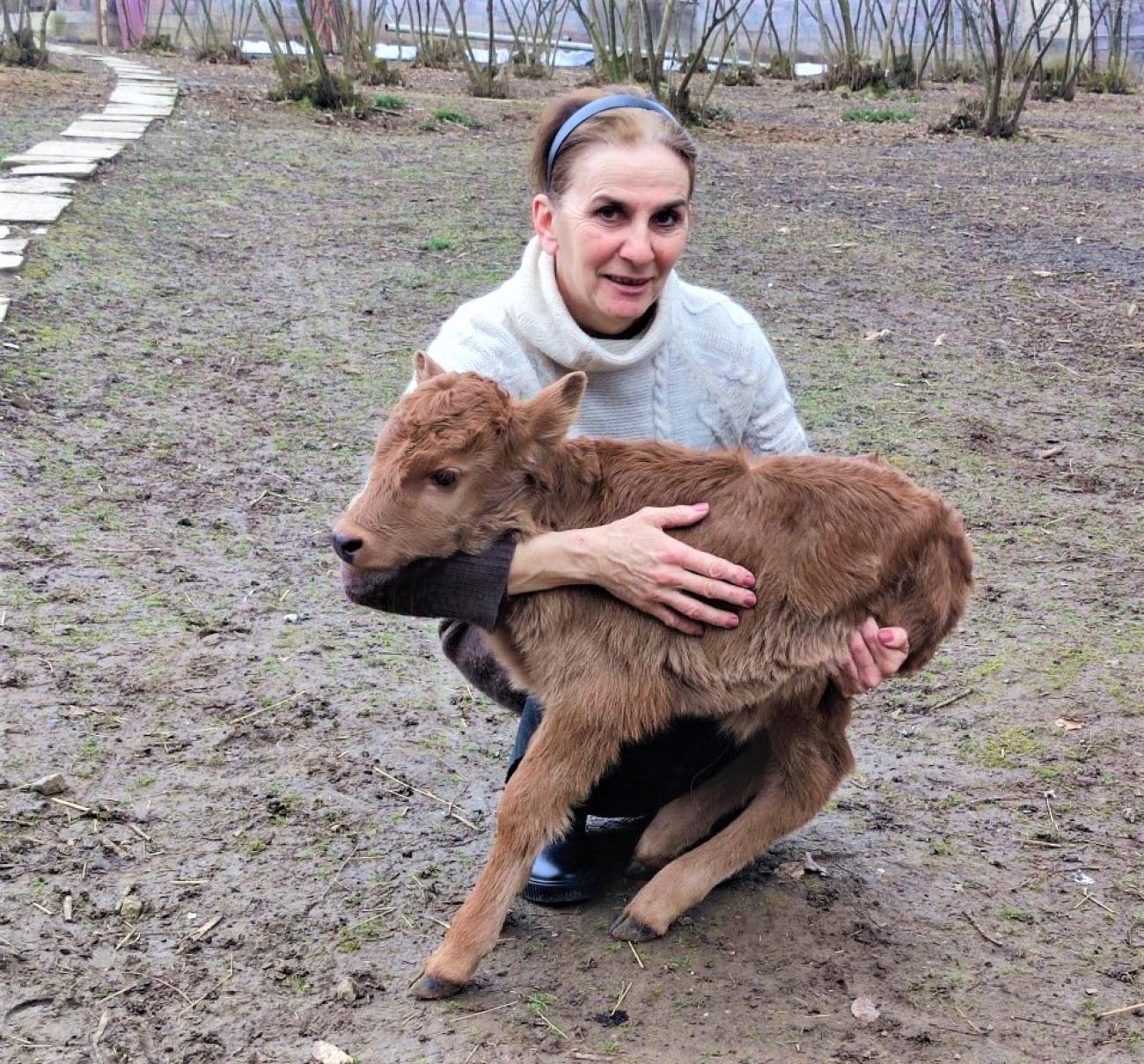Marina Rukhaia, 57, is an IDP from the village Dranda, Abkhazia. In 1993, after the war in Abkhazia, together with her husband and two children she fled to St. Petersburg, Russia. After 2 years, the family decided to return to Georgia for their children not to forget their language and culture.
The family started a new life in the village of Etseri, Tsalenjikha Municipality where their relative offered them an old, small wooden house. Marina started working as a teacher of physics in the local school and in parallel engaged in farming.
“It was really difficult to move for the third time, to start everything from scratch, to get used to new people and environment. I remember well, we did not even have basic household items. I remember the family had to eat by turns because we did not have enough dishes. Slowly we managed to get back on feet. When you are a woman, you have to carry a great part of the burden of a difficult village life. “
Initially Marina’s family purchased one dairy cow and started producing cheese mainly for home consumption. She soon noticed the market demand for dairy products and the family started buying more cattle. Nowadays, Marina owns ten cows. The family was gifted a bee colony from their relative, and after identifying local demands for honey they decided to start a beekeeping business as well. Currently they own 26 bee colonies.
Marina applied to the government-funded programme Produce in Georgia and received a grant for planting one hectare of blueberries.
“I think women should fight their fear and stand for themselves, make the most of all opportunities. It is such a special feeling of satisfaction when you can prove to yourself and to others that you are able to make life better. If I looked at myself in 2022 from my early 30’s, before resettlement, I would not believe being so strong and able to do that much.”
Marina now already has 2 grandchildren. Her daughter emigrated to Greece but she still considers the unity of her family the key to its success.
“Unity in family means a lot, we all know our duties and responsibilities are divided and scheduled equally. This really leads to success. For my husband and me, there is no such household chores of man or woman, we know that mutual understanding and delegating is essential if you want to achieve something in life”.
Marina took the responsibility to become Lead Farmer of a dairy Farmer Field School (FFS) implemented by FAO. She is interested in new production techniques, and in business opportunities offered to her under the project.
Through participation in FFS Marina builds her production skills and acquires knowledge of best hygiene practices and innovative technologies. She receives information about the market needs, Georgian legislation for Food Safety Standards and its implication at farm production level.
The knowledge and information obtained under the project helps her access the market successfully; FAO team is in the process of identifying local buyers to help her with market linkages.
Marina exchanges her knowledge and experience with other women members of the FFS, as well as with the full network of 20 FFSs in Samegrelo-Zemo Svaneti region, uniting over 250 women. Through this platform, women can discuss challenges and build foundations for future collaboration.
From the FAO project, she also received animal welfare and diversification equipment for her production, to replicate best practices demonstrated at the trainings. As a complement of FAO technical support, UN Women provides Marina and other women farmers with trainings in business and entrepreneurship skills. This knowledge will enable her and other women to create and upscale their own production systems.
With the practice obtained from the project Marina plans to start producing aged cheese and offer an innovative local product to her region.
“I would like to encourage women, especially IDPs and those living in rural areas. They should first appreciate themselves and not be ashamed of being engaged in agriculture, whether they are educated or not,” Marina says.
“Fostering economic empowerment of women farmers by supporting homemade dairy production through the Farmer Field Schools (FFS) approach” is a project implemented by the Food and Agriculture Organisation of United Nations (FAO), the UN agency for gender equality and women's empowerment UN Women, funded by The Swiss Agency for Development and Cooperation (SDC). The project started in October 2020 and will be operational until 30th September 2024.






